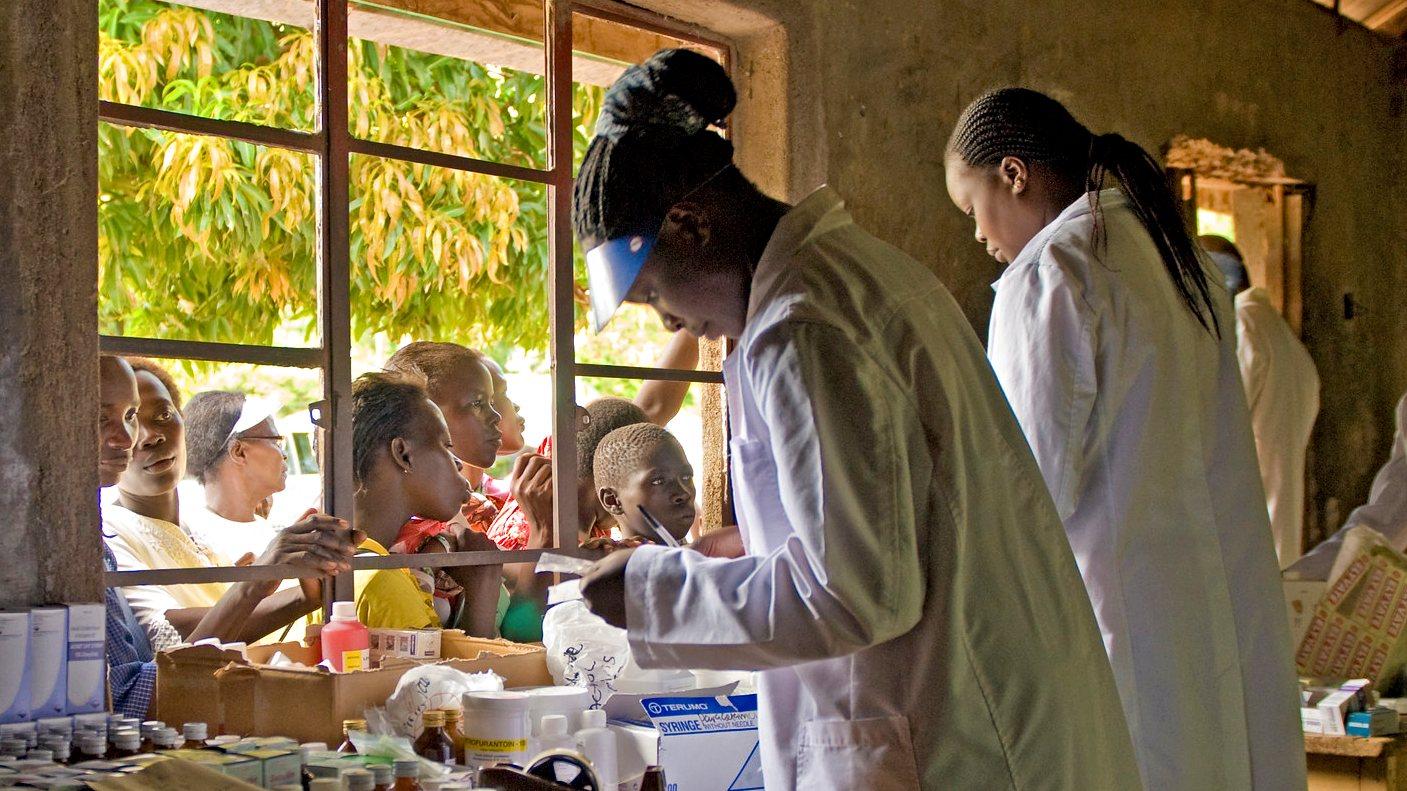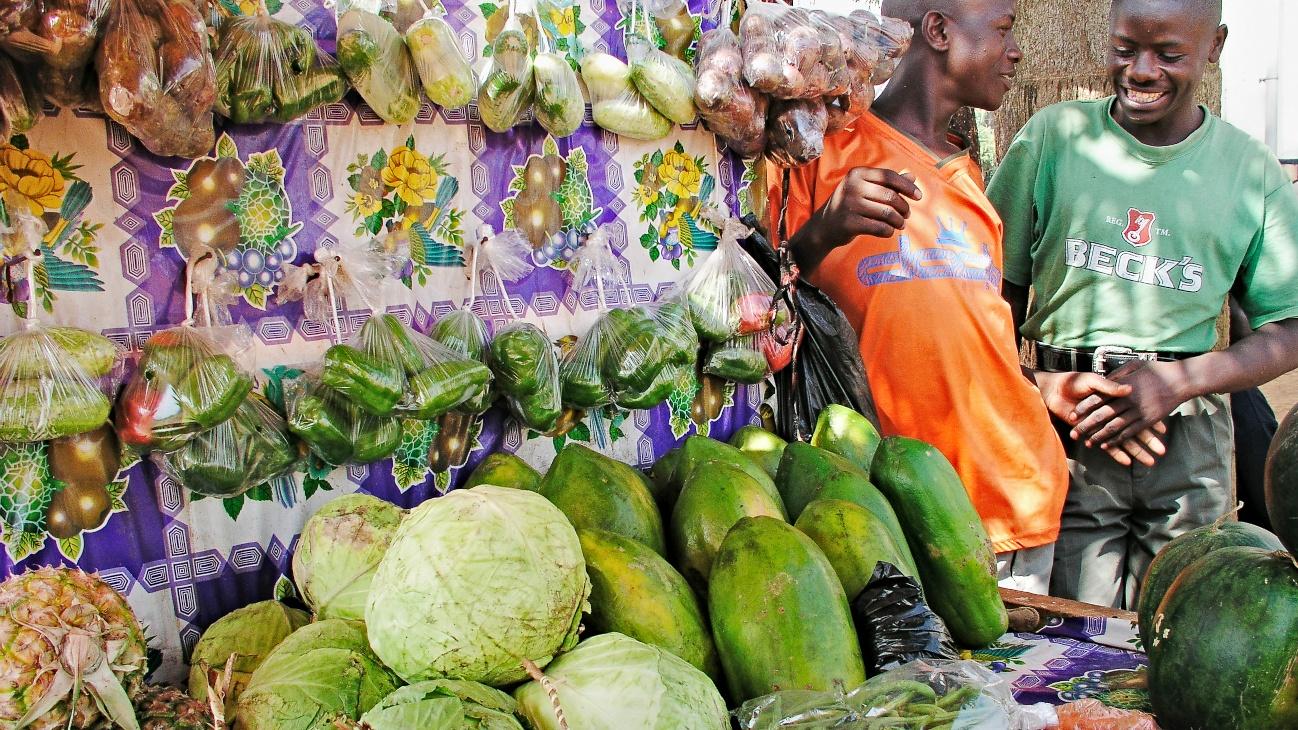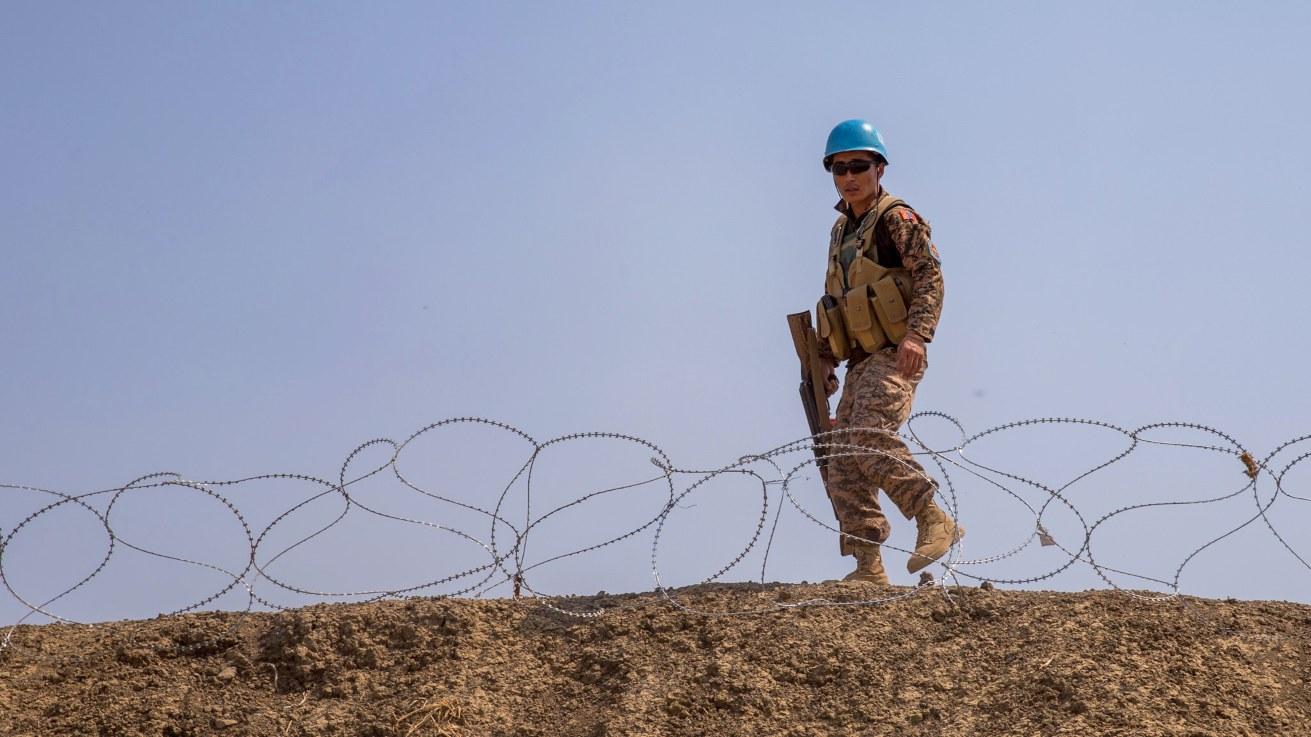Despite Uganda’s lockdown banning private and public transport, freight trucks continue up and down the country’s roads. With truck drivers accounting for a large proportion of positive COVID-19 cases, many citizens are questioning the fairness of government regulations, especially those who rely on movement and trade to survive. Noah Ukumu reports from Pakwach District between 20 April and 17 June 2020.
This blog is part of the series Shifting Spaces, an emerging timeline of COVID-19 responses from Kenya, Malawi, Tanzania and Uganda.
By 1 May 2020, nearly 30 of Uganda’s 83 COVID-19 cases were foreign nationals, and others were truck drivers of long-distance freight across the nation’s borders. In Pakwach, since it was truck drivers who made up the first confirmed cases, COVID-19 has become indelibly tied to those who enter from outside, and those local residents who interact with them. As such, to avoid stigmatisation, many Pakwach residents have been avoiding contact with truck drivers who were previously a major source of trade and income generation.
Since the cessation of war in northern Uganda in the mid-2000s, Pakwach Town has become a major stop-over for truck drivers, transporting goods from Kenya and Tanzania to the Democratic Republic of Congo (DRC) and South Sudan. The volume of trade is significant, and the West Nile region which hosts Pakwach District serves as a hub for exchange within Uganda. The local economy of Pakwach is grounded in fishing on the River Nile, which attracts many traders from DRC, along with other Ugandans. Local vendors depend on vending smoked, salted and fried fish to these sellers, as well as to truck-drivers and travellers. Because of cross-border movement, residents of Pakwach consider themselves at risk from infectious diseases. In recent years, campaigns against cholera and Ebola have been undertaken in the District.
In light of this history of movement, this post explores local perceptions of the first COVID-19 case, and its relation to trade flows and local subsistence.
First cases of COVID-19 in Pakwach
On Friday 24 April, 2020, four truck drivers tested positive for COVID-19 after passing through Mutukulua border, Pakwach District. The drivers were Tanzanian nationals, and their cargo was destined for the DRC. The truck drivers were tested at the border and, after samples were taken for testing, allowed to continue with their journey. After the results were revealed (24 hours later), the drivers were subsequently intercepted by police. The drivers were transferred to Arua Regional Referral hospital, the region capital, where a special unit has been prepared to host infections. The co-drivers were also quarantined at the Ugandan College of Commerce, in Pakwach, and monitored by the local authorities.
Yet, despite the seeming effectiveness of the testing system, authorities were concerned that, after testing, and despite escorts, the drivers continued to interact with local residents in Pakwach. For example, sex workers from the district were known to have engaged in business with the drivers. Nine women, who were known to have contact with drivers, were quarantined with the other co-drivers who had tested negative. In total, 24 contacts were quarantined.
Local fears that COVID-19 is being brought into the district have been compounded by a wider politics of managing these cases. In April, prominent Arua District leaders refused to manage a Kenyan truck driver who had tested positive. While this incident met with criticism from Ministry of Health Officials, these officials too have participated in public discourse attaching COVID-19 to foreign nationals. For example, Dr Ruth Aceng, the Ugandan Minister for Health, said while addressing Arua COVID-19 task force members in Arua town:
‘The cargo drivers from Mutukula will usually end up around here and the unfortunate thing is that we don’t have a lot of information on what is happening in our sister country of Tanzania. But you need to prepare your minds that any cargo truck coming to your border points of entry, is a potential source of infection’.
Aceng further advised women sex workers to avoid contact with truck drivers, explaining that these women could act as vehicles for infection in the community, spreading the virus to their husbands and households. Particular individuals were identified as being at risk of both contracting and spreading COVID-19.
Since Pakwach marks the only road crossing between the West Nile sub-region and the wider Ugandan state, fears of such people were felt most acutely in this district.
Responses in Pakwach District
The fear of COVID-19 has been felt acutely by residents in Pakwach, given the registration of cases and visible flows of cargo and freight. Prior to April 2020, many generations, particularly younger ones, had considered COVID-19 to be associated with China, or to be a political conspiracy connected to the postponement of elections, or a money making venture for the advantaged minority. Communities in Pakwach also assumed the hot weather would not favour the survival of the virus, and so halt its transmission. Residents of Pakwach District prefer to be called the ‘Jonam’, simply meaning ‘the people along the water body’, and previously many believed COVID-19 would not cross the Nile. Since no cases had been registered, imposed government restrictions seemed onerous.
Yet the registration of cases precipitated fears that an area perceived to be a safe haven was now directly implicated in the spread of the virus. Tellingly, COVID-19 was referred to as ‘kizi ngom’ or ‘tho ngom’, literally meaning ‘a pestilence’. This local nomenclature signals both the mode of treatment and how the disease was perceived as both fatal and highly contagious. The elderly were particularly fearful.
These fears were simultaneously directed towards particular bodies, who were associated with COVID-19 in the eyes of the local community. Specifically, truck drivers were thought to be its vectors. Such individuals stand out in the local landscape, since truck drivers often do not speak the Alur language, instead speaking Kiswahili, and so can be immediately identified as foreigners. Pakwach residents are used to selling to, and engaging with, truck drivers passing through the District, or staying overnight in the town. Many drivers were accommodated in hotels and eateries and before COVID-19 were considered a source of business. Yet, these cases changed those dynamics.
Since April, residents no longer want to relate freely with truck drivers, because these individuals are now viewed as potential COVID-19 carriers. People fear that truck drivers may have stopped in many places along Uganda’s roads, at risk of both becoming infected with COVID-19 and spreading the virus to others. Subsequently, on Thursday 30 April 2020, the Local Council Five (LC5) chairperson, Honorable Omitto Robert Steen, suggested to the District leaders and the COVID-19 District Task Force that they ensure no truck or truck driver should stop in the town, whatever the reason. This request was in response to community demands: ‘wek gi kadh akadha kudh gi cungi keni’ (Let them just pass, let them not stop here).
Yet because truck drivers have continued to pass through, individuals have adopted their own solutions. Many local residents no longer opt to trade foodstuffs, or provide shelter to drivers openly because they too needed their services to sustain themselves during the lockdown. One community member vending merchandise was heard to exclaim, ‘wu mitu wu nyai iwa two mewu no’ (you want to spread that disease of yours!) as the truck driver sought to buy her goods without practicing hand washing. Her admission encapsulated local responses to COVID-19, where trade is viewed as being sacrificed for safety. These incidents have affected the relationship between truck drivers and the community, and residents of Pakwach continue to avoid openly interacting with truck drivers for fear of being stigmatised.
Yet, services have continued, particularly selling from local shops. Truck drivers have continued to engage somewhat with communities. In response, local landlords reportedly threatened to evict community members who were in direct contact with the four truck drivers and their family members. Thus, patterns of internal stigmatisation unfolded, when residents were told, ‘kudh wukel iwa korona’ (don’t bring us the Corona!). These comments were mainly directed at sex workers, with three women subsequently fleeing to neighbouring Nebbi District. Here, these women were registered and confined to an improvised quarantine centre within Nebbi Town Secondary School.
Since Pakwach residents continue to deal with perceived risks, many have demanded an explanation from government. Specifically, residents are confused as to why, despite a lockdown which bans private and public transport, President Museveni has allowed truck drivers to proceed up and down the country’s roads. Some have claimed that Museveni is prioritising cargo movement for national wealth while they starve because of lockdown restrictions. Indicative comments include ‘wan watagu ataga kaye, kun gin kuloka migi cidhu iwange’ (we are here struggling yet their [Museveni’s] business is moving on); ‘wan kuloka mwa timbere ungo, ke wothu jai, migi ke jukere ungo’ (our businesses can’t be done because movement is hard, yet theirs can’t be stopped) and more direct claims such as, ‘lori eni gi weng’ gitimu kuloka migi’ (all these trucks are carrying on his [Museveni’s] business.) Though the District Task force has ensured truck drivers have their body temperature monitored at Mutukulua checkpoint, without enforcement many residents believe this is insufficient.
Attitudes towards truck drivers are not homogenous amongst Pakwach residents. Some have suggested that the truck drivers are innocent, merely fulfilling their work, while the community should be adhering to the presidential guidelines by staying at home, where they cannot make contact with the truck drivers. Yet, many cannot adhere to these guidelines because they need to fend for their families. As elsewhere, the lockdown measures are too restrictive for those who rely on trade to survive.
Photo credit: Adam Cohn licensed under creative commons (CC BY-NC-ND 2.0)






I uphold this facts putting into notice the political game played by the government with selfish intent leaving our region (West Nile) marginalised with their (government) intent to cripple the economic strength and dependence within the region.